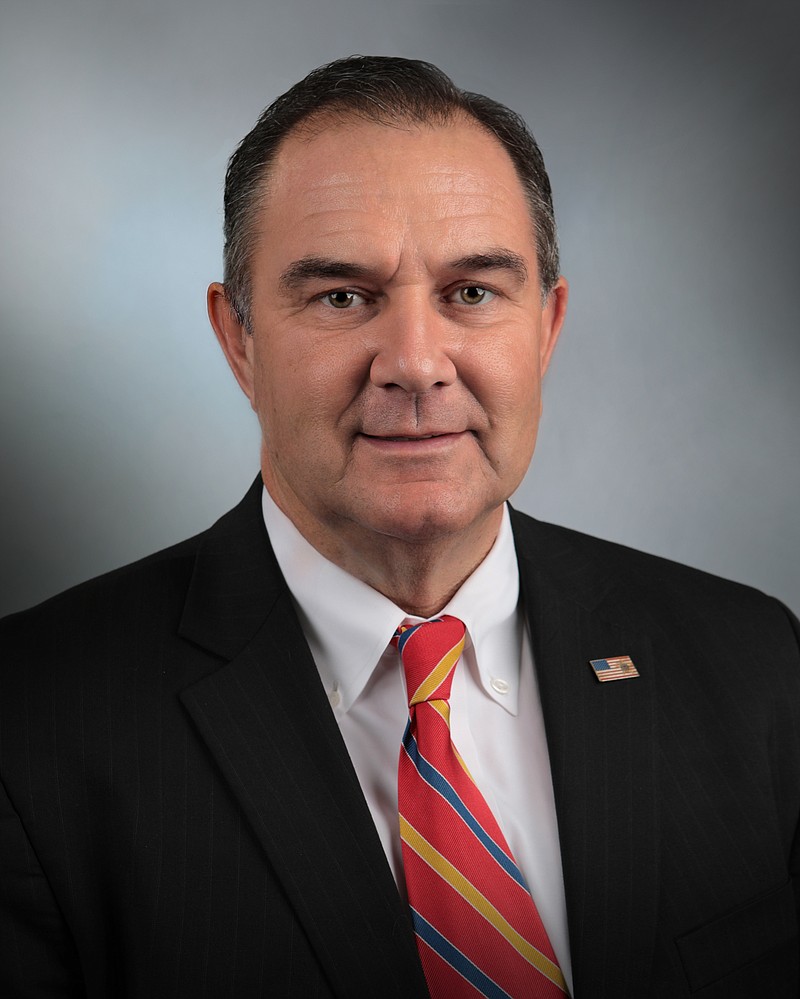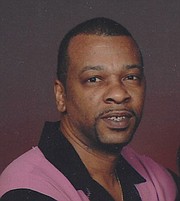The views of the Republican candidates for lieutenant governor on the office's most important duty range from issue-specific to more general advocacy or public relations, but all three who spoke with Central Missouri Newspapers have ideas for what they would do if elected.
Arnie C. AC Dienoff, of O'Fallon; incumbent Lt. Gov. Mike Kehoe, of Jefferson City; Aaron T. Wisdom, of Williamsburg; and Mike Carter, of St. Charles, will appear in that order on the Aug. 4 primary election ballot seeking their party's nomination as the Republican candidate for lieutenant governor in November, when they would face the winner of the Democratic primary.
Wisdom did not respond to request for an interview.
Dienoff described himself as a public advocate who frequently testifies before the Legislature and regional and local governments on behalf of groups such as Missourians for Public Safety and Missourians for Responsible Government. He said he's a legal consultant for attorneys on jury selection.
Kehoe was appointed by Gov. Mike Parson in June 2018 to be lieutenant governor after the position was left vacant when Parson left the role to become governor after former Gov. Eric Greitens resigned. Kehoe was previously a state senator and operated a local car dealership from 1992-2011.
Carter is an elected municipal judge in the 11th Circuit. He said he is also chief operating officer of CarShield and an attorney with experience in corporate, criminal and real estate law.
Dienoff said while the lieutenant governor has many roles, the most important responsibility is to stand for every Missourian, regardless of party, religion or political affiliation. "Everybody deserves customer service," he said, and he wants to be called when someone has a problem. He added that he could be a power-broker in the state Senate and work to craft legislation that would move Missouri forward.
Kehoe said the most important role of lieutenant governor is "our interaction with the Veterans Commission." Missouri's veterans population is the fifth-largest in the U.S., he said, and "we very much work with our Veterans Commission and staff around the state to, No. 1, make sure that our veterans are being taken care of. There's no greater thing that, I think, any elected official, whether you're the lieutenant governor or not, can do to make sure our veterans are treated properly."
Carter said the lieutenant governor does not have much authority to do anything, and "I might even work to eliminate the office as an independently elected position." While he emphasized the tentative nature of that pursuit, he sees the position of lieutenant governor as able to capture people's attention to highlight issues or initiatives. He held the tenure of former Lt. Gov. Peter Kinder in high regard for that reason, especially with Kinder's work promoting tourism.
The lieutenant governor's constitutional duties are to preside as president of the Missouri Senate and vote in the event of a tie; preside as governor when the governor is out of the state or disabled; and to become governor for the remainder of the term should the governor die, resign, or be convicted or impeached.
Missouri law has expanded the role of the lieutenant governor to serve on a variety of boards and commissions, including the Board of Fund Commissioners that issues, redeems and cancels state bonds; the Missouri Development Finance Board that promotes economic development; and the Missouri State Capitol Commission that recommends how to restore and preserve the Capitol and its grounds.
CMNI asked the candidates for lieutenant governor about their priorities for the position's role with advocating for senior citizens, as well as serving on the state's Housing Development Commission.
Senior citizens
The lieutenant governor's office has within it the Office of Advocacy and Assistance for Senior Citizens, which coordinates activities with the long-term ombudsman program on "complaints made by or on behalf of senior citizens residing in long-term care facilities," per Missouri law. The advocate also investigates complaints and recommends actions to be taken.
"We need to up our investigation rate," Dienoff said of complaints taking too long to be investigated. He said more investigators should be hired. He also said more senior housing will be needed, but there should be a balance in development between a fair profit for developers and excess, when industry staff such as nurses are not paid enough.
With nursing homes locked down for much of the year to protect residents from infection during the COVID-19 pandemic, Kehoe said it's been difficult for families that have not been able to see their loved ones. He said he is meeting with clergy and the state's public health leader to try to establish a process for clergy to be considered essential people to be granted access into senior communities.
"Faith people feel like just as much as an elderly person in a home needs a physical therapist to come in and help them walk or do different things, they think spiritual fitness is as important as physical fitness, and some residents feel that way, too," Kehoe said.
Carter said the lieutenant governor could use the role as the state's advocate for seniors to change the conversation about senior citizens. He said what older people are capable of achieving could be highlighted more - such as going back to school - and that could lead "a phase shift" in how that population is talked about.
The lieutenant governor's office currently has a Senior Service Award "intended to promote and highlight the positive accomplishments Missouri's senior citizens provide their local communities," according to the most recent nomination form, which was due May 1.
Housing development
The Missouri Housing Development Commission in the Department of Economic Development has a $3.5 million budget funded through the Missouri Housing Trust Fund, according to the lieutenant governor office's website. The commission appropriates money to homeless shelters, domestic violence shelters, transitional housing, emergency housing assistance, home repairs for low-income homeowners, rental assistance for low-income people, and the development of low-income housing.
Dienoff said due diligence is needed to make sure money is not being given on the basis of political favors. He also said it should be certain that projects are coming in under budget while still being good-quality housing. The money should also be repaid in a responsible period of time, he said.
In December 2017, then-Gov. Eric Greitens and the Missouri Housing Development Commission voted to stop matching state funds for federal tax credit programs. Then-Lt. Gov. Mike Parson was one of two dissenting votes on the 10-member commission.
Kehoe said: "Maybe before, when we shut the tax credits off, they were a little bit too loose. The Legislature has talked about tightening those down, putting a cap on them and doing some other things. I've been involved in all those conversations, and I hope that we can get to a path where we can responsibly turn those state tax credits back on," to address the growing need for low-income housing, especially in rural areas.
Carter said he would "make it certain that there's not just a sharing of those monies in slush-fund type ways" from the housing commission to those with the most muscle in the housing development community.


